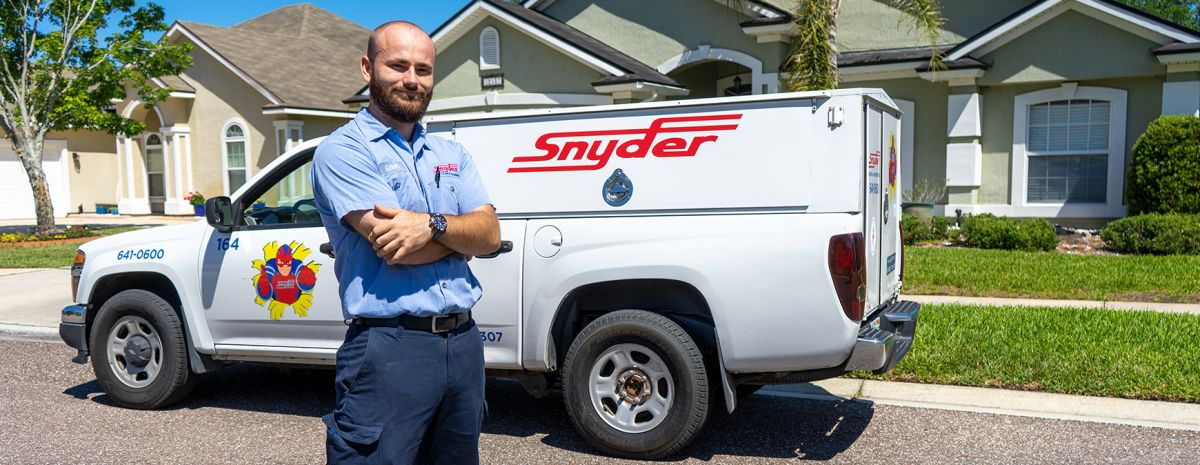TWS is a Great Training Option for Everyone
Learn more about how we can prepare you to advance your career.
Thinking about entering the field of HVAC in Jacksonville?
You may be wondering about the difference between different sorts of job titles. The names can get confusing, especially if this is your first time learning about them.
For example, what’s the difference between an HVAC tech and an HVAC engineer?
In short, HVAC techs do more of the hands-on work in everyday scenarios, while HVAC engineers work behind the scenes to design HVAC equipment.
Have You Considered a Career in the Skilled Trades?
Fill out the form to recieve a no obligation info packet.
Job Duties
According to the U.S. Bureau of Labor Statistics, an HVAC technician performs the type of work that is focused on maintaining HVAC equipment, such as:
- Installing and cleaning HVAC systems
- Inspecting and testing HVAC components
- Repairing or replacing worn out parts
- Keeping records of all work performed
- Discussing issues with customers
An HVAC engineer is more focused on designing HVAC-related equipment, such as:
- Designing HVAC systems for new buildings
- Retrofitting energy efficient systems to existing structures
- Creating or revising technical drawings
- Troubleshooting issues on-site
- Meeting with clients and overseeing technicians
Training
The training required to become an HVAC engineer in Jacksonville is more time-intensive than training required to become a technician. An HVAC engineer generally needs to have a bachelor’s degree in mechanical engineering. Some positions, such as in management, may also require a master’s degree.
Coursework may include a great deal of science and math, such as:3
- Calculus
- Chemistry
- Fluid dynamics
- Thermodynamics
- Electrical engineering
Training to be an HVAC tech does not require a bachelor’s degree in Jacksonville.

New: Industrial Maintenance
Learn About Our New Advanced Industrial Maintenance Program
Tulsa Welding School is proud to announce our newest program offering available at our Houston & Dallas Metro Campuses – Advanced Industrial Maintenance Technology! Learn the skills you need to take on the industries of manufacturing, distribution, energy production and facility maintenance in as few as 7 months.
Typically, HVAC techs can get started learning the trade either at a technical school or in an apprenticeship. These programs can last anywhere from 6 months to 2 years.
Tulsa Welding School Jacksonville campus offers a Refrigeration Technologies program that can be completed in 7 months and an Electro-Mechanical Technologies program that can be completed in 9 months.
Coursework is focused on hands-on applications, such as:
- Fundamentals of Electricity
- Fundamentals of Refrigeration
- Residential Comfort Systems
- Commercial Comfort Systems
- Troubleshooting
Work Environment
An HVAC tech spends most of their time servicing HVAC equipment on-site, whether that is a Jacksonville residential or commercial building, hospital, school, factory, or any other place where HVAC equipment needs to be serviced.
HVAC techs may be assigned to one job site per day, or they may travel to different sites throughout the day. They often work indoors, but sometimes they may need to work on outdoor heat exchangers.
An HVAC engineer will likely spend most of their time working in an office in Jacksonville, but they may occasionally be tasked with visiting job sites to oversee some HVAC design work. They might need to travel to factories, schools, hospitals, office buildings, or wherever their HVAC design work is needed.
They might also work outdoors in order to assess the HVAC needs of a specific area.
Skills
Some skills may overlap between HVAC techs and HVAC engineers, but here is a breakdown of the types of skills necessary to do each job.
HVAC techs need skills in the following areas:
- Math skills to calculate load requirements.
- Mechanical skills to work on HVAC components.
- Attention to detail, such as keeping detailed records.
- Physical stamina to spend long hours walking or standing.
- Physical strength to lift and support heavy equipment.
- Time management to manage multiple daily maintenance calls.
- Troubleshooting to identify problems with HVAC systems.
- Customer service, such as being friendly and polite.
HVAC engineers typically need the following skills:
- Technical skills to read and interpret HVAC designs, documents, and blueprints.
- Problem solving skills to find solutions to technical issues.
- Communication skills to communicate with clients and teams about design implementation.
- Project management skills to oversee large design projects with many people involved.
- Leadership skills to help motivate and direct a team all working toward a common goal.
Other Differences
The bottom line is that HVAC engineers require more schooling, and they work more on the design elements of HVAC, while HVAC techs require less training to get started and work more hands-on with HVAC equipment.
Another difference is that HVAC engineers are increasingly focused on designing and implementing energy efficient technologies and green technology.
If you are thinking about going into the field of HVAC as a career, consider the differences in job duties and training required for HVAC techs vs. HVAC engineers in Jacksonville.
If you want to be designing HVAC equipment, then the extra schooling might be worth it and HVAC engineer might be the right choice.
If you want to get started relatively quickly and are more interested in hands-on work, HVAC tech could be the way to go. Call TWS at 1-855-237-7711 for more information about HVAC training programs at our Jacksonville campus.
Learn more about the ins and outs of HVAC careers in the Sunshine State, such as HVAC certification in Florida.
This blog has been labeled as archived as it may no longer contain the most up-to-date data. For a list of all current blog posts, please visit our blog homepage at https://www.tws.edu/blog/







